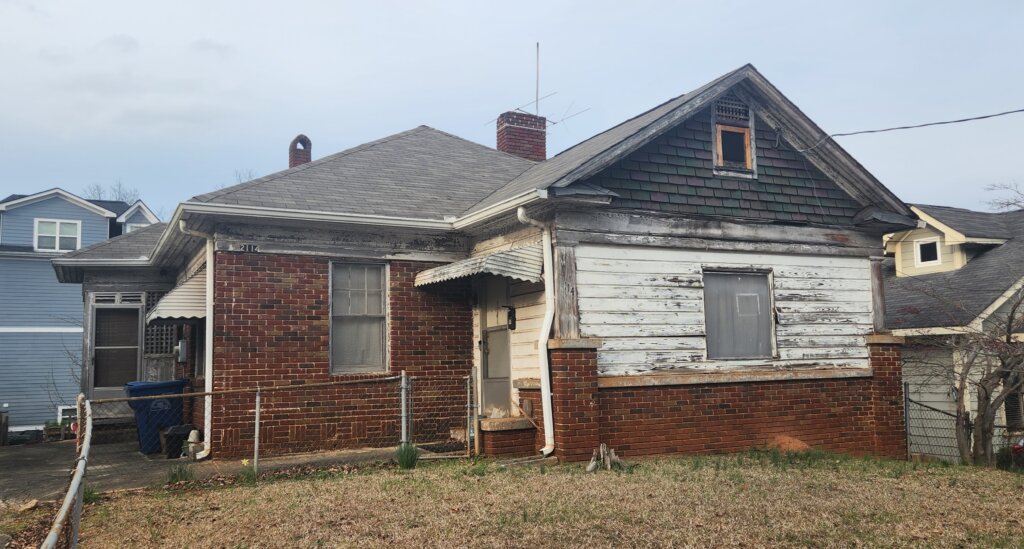Understanding the foreclosure process in Atlanta is an important part of navigating your own home foreclosure. You have to know what the process is so that you can make a sound judgment on what will work best for you! And naturally, banks don’t make the foreclosure process easy for you. There are several steps to be aware of and there are several things that you can do to try and have the best outcome happen. Thats why understanding the foreclosure process is so crucial if you’re experiencing financial troubles and missing payments to the bank. Ultimately, it can save you a lot of money and headaches.
Before we dive in…
Understanding the Foreclosure Process in Atlanta
What is foreclosure anyway?
Foreclosure is the legal process that lenders use to take back property securing a loan, generally after the borrower stops making payments.
Foreclosure is no fun. But just know that it’s not the end of the world. There are several things that can be done to prevent foreclosure from happening.
When you know how foreclosure in Georgia works… it arms you with the knowledge to make sure you navigate it well and come out the other end as well as possible.

The Basic Stages of A Foreclosure
There are a few stages that are important to any foreclosure process.
Foreclosure works differently in different states around the country.
The two ways different states use to foreclose upon a property are: judicial sale or power of sale.
Connect with us by calling 404-439-9984 or through our contact page to have us walk you through the specific foreclosure process here locally in Atlanta.
In either scenario, foreclosure typically doesn’t go to court until 3-6 months of missed payments have elapsed, and in Atlanta you have to miss at least 120 days worth of payments. Usually (but not always), a lender will send out many notices that you are in arrears – overdue or behind in your payment. In Atlanta and Georgia in general, once the 120 missed days of payments has passed, the lender must send out a notice to the borrower of its intent to foreclose and it must be sent out 30 days prior to the proposed foreclosure sale.
Under Judicial Foreclosure:
- Your mortgage lender must file suit in the court system.
- You’ll get a letter from the court demanding payment.
- Assuming the loan is valid, you’ll have 30 days to bring payment to court to avoid foreclosure (and sometimes that can be extended).
- If you don’t pay during the payment period, a judgment will be entered and the lender can request the sale of your property – usually through an auction.
- Once the property is sold, the sheriff serves an eviction notice and forces you to immediately vacate the property.
- In most cases, this process of foreclosure does cost the bank more and they usually end up opting for a non-judicial foreclosure.
Under Power of Sale (or Non-Judicial Foreclosure):
- First, the lender must send out a notice of intent to foreclose 30 days before the date of the scheduled foreclosure sale. This notice must include specific information and be mailed/delivered a certain way for it to be legal and binding. Usually, it will also contain a copy of the publicized advertisement for the sale of your home.
- This notice of intent to foreclose will usually include a 10 Day Attorney’s Fees Notice which informs you that you have ten days from the receipt of said notice to pay the principal and interest without incurring attorneys’ fees.
- There will also be a Publication of the Notice of Sale. The foreclosure sale must be advertised in the county newspaper where the property is located once a week for four weeks before the scheduled auction date. Foreclosure sales are typically held at the county courthouse on the first Tuesday of the month. The bank can bid on the property as well as 3rd parties. If the winning bid is over the amount you owe, you are entitled to that surplus money, but this rarely happens.
Anyone who has an interest in the property must be notified during either type of foreclosure.
For example, any contractors or banks with liens against a foreclosed property are entitled to collect from the proceedings of an auction.

What Happens After A Foreclosure Auction?
After a foreclosure is complete, the loan amount is paid off with the sale proceeds.
Sometimes, if the sale of the property at auction isn’t enough to pay off the loan, a deficiency judgment can be issued against the borrower.
A deficiency judgment is where the bank gets a judgment against you, the borrower, for the remaining funds owed to the bank on the loan amount after the foreclosure sale.
Some states limit the amount owed in a deficiency judgment to the fair value of the property at the time of sale, while other states will allow the full loan amount to be assessed against the borrower.
Here’s a great resource that lists the state by state deficiency judgment laws (which will help you in understanding the Foreclosure Process in Atlanta), since every state is different.
Generally, it’s best to avoid a foreclosure auction. Instead, call up the bank, or work with a reputable real estate firm like us at ATL Cash Home Buyers to help you negotiate discounts off the amount owed to avoid having to carry out a foreclosure.
Experienced investors can help you by negotiating directly with banks to lower the amount you owe in a sale – or even eliminate it, even if your home is worth less than you owe.
If you need to sell a property near Atlanta, we can help you.
We buy houses in Atlanta Georgia like yours from people who need to sell fast.
Give us a call anytime 404-439-9984 or
fill out the form on this website today! >>
Another Foreclosure Resource For Atlanta Georgia HomeOwners:
